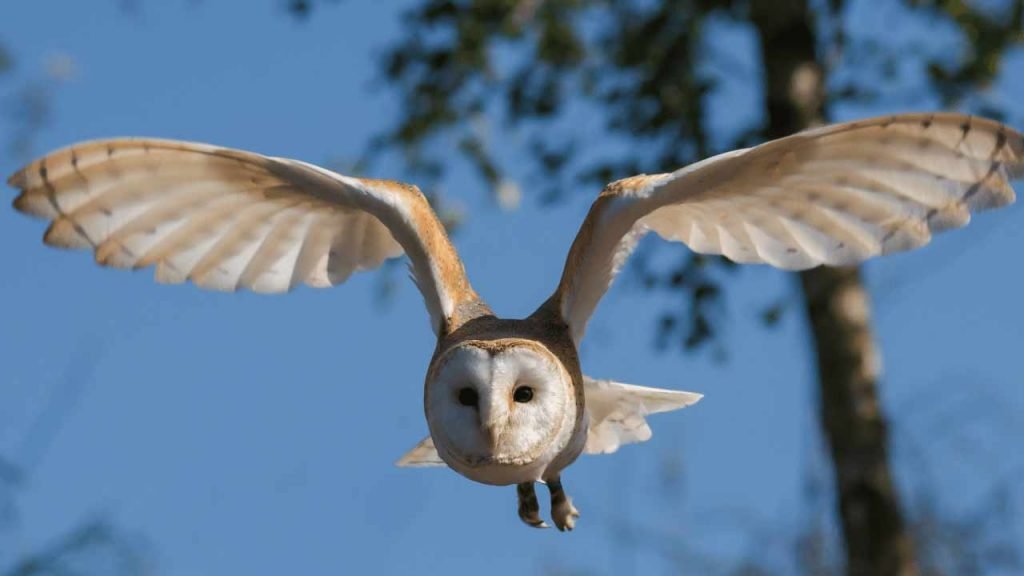Throughout history, many cultures have believed that seeing an owl signifies good luck. Whether it be ancient Greece and Rome, Native American cultures, or even Asian cultures, owls have held a special significance in people’s minds. The belief that seeing an owl brings good luck is rooted in ancient mythology and folklore, but what does this belief mean in today’s world?
The purpose of this blog post is to explore the origins and significance of the belief that seeing an owl is good luck. We will delve into the historical and cultural perspectives of this belief and examine the scientific perspectives that may provide insight into why people associate owls with good luck.
We will also share personal accounts and experiences of people who have seen an owl and how it affected them. Through this exploration, we hope to gain a deeper understanding of the significance of owls in human culture and the natural world.
Contents
Mythology and Folklore of Owls in different cultures:
Owls have appeared in mythology, folklore, and literature throughout history all over the world. They are recognized as symbols of wisdom, courage, mystery, and protection. Below are a few examples of how different cultures view owls and how they are portrayed in their mythology, folklore, and literature.
1. Ancient Greece and Rome:
In ancient Greek mythology, the owl symbolized wisdom and was associated with the goddess Athena. In ancient Rome, the owl was associated with the goddess of wisdom, Minerva, and was seen as a symbol of good fortune. They also believed that an owl’s hoot was an omen of death.
2. Native American cultures:
Different tribes in Native America have different beliefs and legends about owls. For example, the Dakota and Hidatsas tribe believed that owls were protective spirit for the brave worriers and that they could help the living communicate with the spirit world.
3. Asian cultures:
In Asian cultures, the owl is often associated with good luck, wealth, and prosperity. In Chinese culture, the owl is seen as a symbol of good luck, wealth, and prosperity. It is also a symbol of wisdom and protection. In Japanese culture, the owl is associated with good fortune and is sometimes depicted on talismans to bring prosperity.
Also read: Is it good luck to see a falcon?
Representation of owl in art and literature throughout history:
Owls have been depicted in art and literature for centuries, often as symbols of wisdom and good luck. For example, in ancient Greek and Roman art, the owl was often depicted alongside Athena and Minerva, respectively.
In literature, the owl is often depicted as a wise and mysterious creature, as seen in works such as “The Owl Service” by Alan Garner and the “Harry Potter” series by J.K. Rowling. Owls have also been depicted in various forms of modern art and popular culture, reinforcing the idea of wisdom and protection.
Scientific Perspectives regarding this belief:
Owls are a group of birds that belong to the order Strigiform. They are found on every continent except Antarctica and come in various shapes and sizes. They are known for their distinctive facial disc, which helps them focus on sound waves and locate their prey. Owls are also known for their silent flight and nocturnal habits.
Owls play an important role in their ecosystems as top predators. They help control rodent and insect populations, benefiting farmers and other human communities. Owls also play a role in seed dispersal and can help maintain the balance of the ecosystem. Some owls are also considered indicators of a healthy ecosystem due to their sensitivity to environmental changes.

People may associate owls with good luck due to their nocturnal habits and silent flight. Their mysterious nature and ability to see in the dark may have led people to believe they have special powers or abilities.
Additionally, their role as top predators in their ecosystems and their ability to control rodent and insect populations led people to believe that they bring good luck in terms of protection and prosperity. Furthermore, the cultural and historical beliefs and legends passed down through generations could also contribute to the association of owls with good luck.
Also read: Is it good luck to see a caterpillar?
Personal Accounts and Experiences of seeing an owl
People often have strong reactions when they see an owl. Some may feel a sense of awe and wonder, while others may feel a sense of fear or unease. Many people also report feeling a sense of good luck or positivity after seeing an owl. Some people even believe an owl appearing to them is a sign of good luck or a message from the spirit world.
People interpret the meaning of seeing an owl in many different ways. Some believe it is a sign of good luck, while others may see it as a sign of something else, such as a message from a loved one who passed away. Many people also believe that seeing an owl has a deeper spiritual significance, and they interpret the owl’s appearance as a sign of guidance or protection.
Superstitions like the belief that seeing an owl is good luck can strongly impact people’s behavior and attitudes. For example, some people may feel more optimistic or confident after seeing an owl, while others may feel more cautious.
Superstitions can also lead people to interpret events in a certain way, such as seeing an owl as a sign of good luck rather than just a natural occurrence. It is important to note that while exploring the cultural and historical significance of the belief that seeing an owl is good luck, it is also important to remember that, ultimately, it is just a belief. It shouldn’t dictate our actions or attitudes.
Conclusion
We have delved into the belief that seeing an owl is good luck, exploring its origins and significance from historical, cultural, and scientific perspectives. We also shared personal accounts and experiences of people who have seen an owl and how it affected them. Through this exploration, we have gained a deeper understanding of the significance of owls in human culture and the natural world.
Writing this blog post has allowed me to understand the cultural and historical significance of believing that seeing an owl is good luck. But after researching, I realized that this belief is just a human interpretation of the natural occurrence, and it shouldn’t dictate our actions or attitudes towards nature.
Owls are fascinating creatures that have held a special significance in human culture throughout history. However, it is important to remember that they are also a vital part of the natural world, and our responsibility is to protect them and their habitats. Responsibly appreciating owls means learning about them, respecting their role in the ecosystem, and taking action to protect them.
To learn more about owls and their role in culture and nature, readers can check out the book “Owls: A Guide to Every Species in the World” by Marianne Taylor.
We would love to hear from readers about their experiences and thoughts on owls and their role in culture and nature. Please share your thoughts in the comments section, and let’s continue the conversation. Additionally, readers can take action to protect the owls and their habitats by supporting conservation efforts, reducing their environmental impact, and respecting wild nature.
Also read other articles regarding birds good luck
FAQs
Q: Is it good to have owls around your house?
A: Having owls around your house can benefit the ecosystem as they help control rodent and insect populations. It can also be exciting to observe these fascinating creatures in their natural habitat. However, it is important to remember that owls are wild animals and should be respected and appreciated from a distance. If you notice an owl in or around your house, it is best to leave it alone and let it continue on its way.
Q: What happens if an owl comes into my house?
A: If an owl enters your house, it is likely disoriented or injured. It is important to remain calm and not approach or corner the owl—open windows and doors to allow the owl to fly out on its own. Contact a local wildlife rehabilitator or animal control for assistance if the owl is injured. It’s important to remember that it’s illegal to keep wild birds without a permit, so releasing them as soon as possible is important.
Q: Are owls dangerous to humans?
A: Owls are generally not dangerous to humans. They are not known to carry diseases that can be transmitted to humans and are not known to attack humans. However, it is important to respect the wild nature of owls and give them space.








